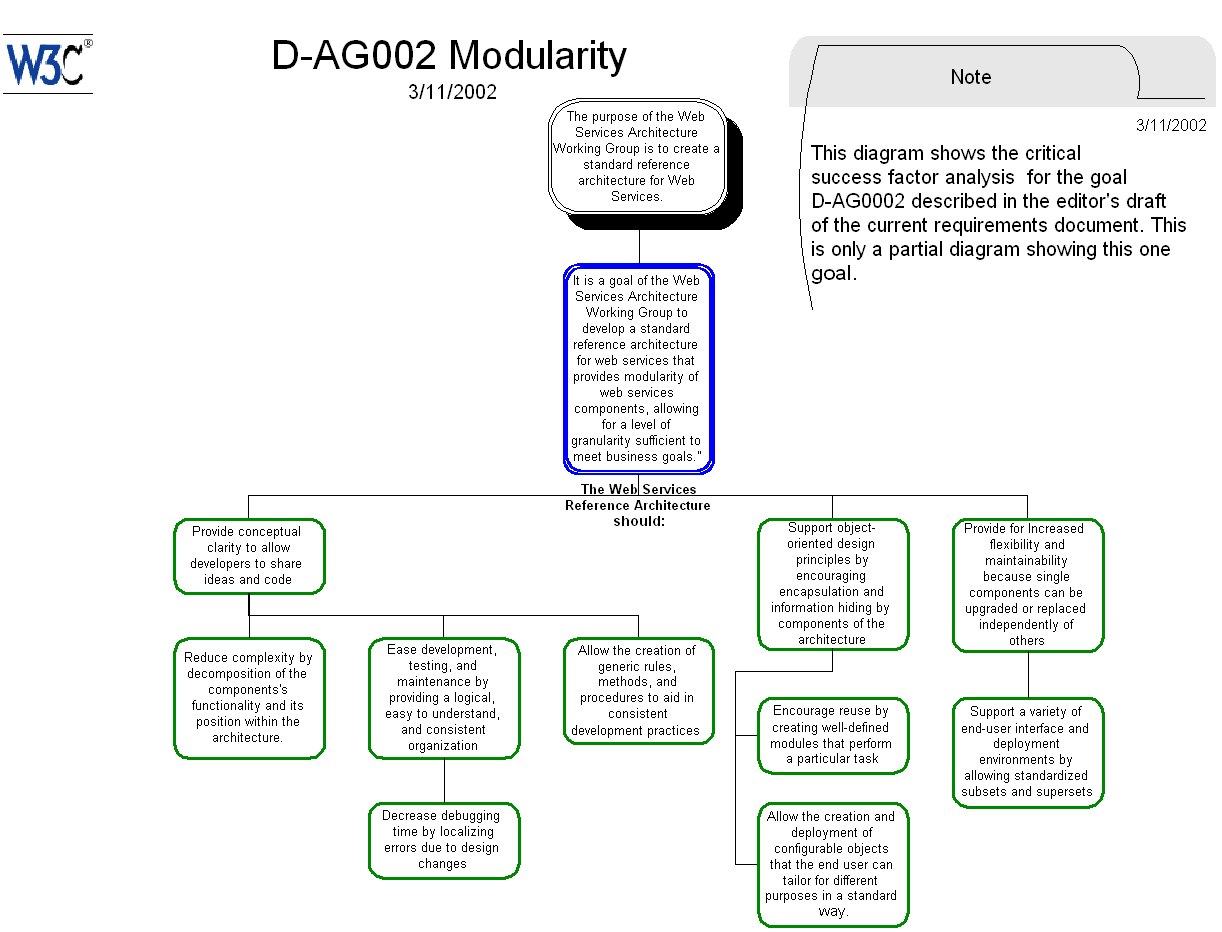- From: Austin, Daniel <Austin.D@ic.grainger.com>
- Date: Mon, 11 Mar 2002 15:00:43 -0600
- To: www-ws-arch@w3.org
- Message-ID: <E0995D588DC3D211BB8D00805FFE353907358B67@ic.ic.grainger.com>
Greetings, I took an action item on Thursday's call to act as champion for two individual goals. This is the first to be posted. The current text of the editor's draft reads: "It is a goal of the Web Services Architecture Working Group to develop a standard reference architecture for web services that provides modularity of web services components, allowing for a level of granularity sufficient to meet business goals." As we consider how best to achieve this goal, we need to ask ourselves the following questions: a) is the proposed text above sufficiently clear, concise and intelligible to serve its purpose? I believe that it is but I may be slightly biased, since I wrote it. :) b) what are the critical success factors that we need to achieve this goal? This consideration should result in a hierarchy of CSFs, which at the lowest level of reduction will become requirements. I would like to propose the following CSF analysis for this goal, from an architectural viewpoint: AG002 - It is a goal of the Web Services Architecture Working Group to develop a standard reference architecture for web services that provides modularity of web services components, allowing for a level of granularity sufficient to meet business goals. Therefore, the web services architecture should: AC0021 - Provide conceptual clarity to allow developers to share ideas and code AC0211 - Reduce complexity by decomposition of the components's functionality and its position within the architecture. AC0212 - Ease development, testing, and maintenance by providing a logical, easy to understand, and consistent organization AC2121 - Decrease debugging time by localizing errors due to design changes AC0213 - Allow the creation of generic rules, methods, and procedures to aid in consistent development practices AC0022 - Support object-oriented design principles by encouraging encapsulation and information hiding by components of the architecture AC0221 - Encourage reuse by creating well-defined modules that perform a particular task AC0222 - Allow the creation and deployment of configurable objects that the end user can tailor for different purposes in a standard way. AC0023 - Provide for Increased flexibility and maintainability because single components can be upgraded or replaced independently of others AC0231 - Support a variety of end-user interface and deployment environments by allowing standardized subsets and supersets It's incredibly difficult to visualize this when it's written in text, but it's easy to understand if you look at the attached diagram ( in GIF format). The heirarchy of CSFs is reasonably clear. This is of course only a partial list, and represents only my own thinking. Let's discuss this and try to come to some consensus on the CSFs for this goal. Then we can move on to the concrete requirements. Regards, D- <<D-AG0002-CSF.gif>> *********************************************************************** Dr. Daniel Austin, Sr. Technical Architect austin.d@ic.grainger.com (847) 793 5044 Visit: http://www.grainger.com "Sapere Aude!"
Attachments
- image/gif attachment: D-AG0002-CSF.gif

Received on Monday, 11 March 2002 16:01:18 UTC